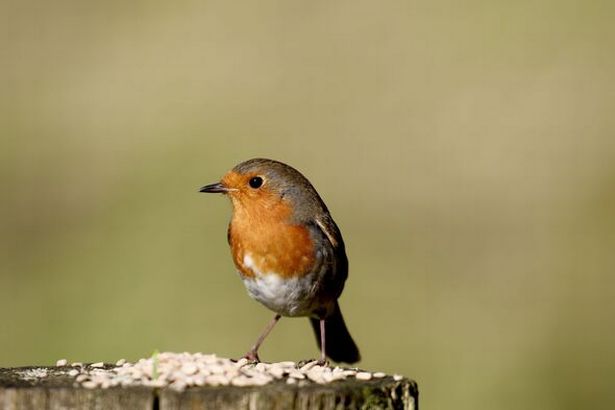Warning Issued for Gardeners with Robins This Christmas - OK! Magazine

Garden enthusiasts are being advised to avoid one particular activity to prevent scaring off Robins this Christmas. The UK's beloved bird is becoming a common sight in gardens as the weather changes, with their striking red breast visible throughout the festive season. The striking little feathered friend is easily identifiable for all home and garden owners, who have been warned that doing this one thing in your garden could be detrimental to their wellbeing.
Making one change in your outdoor space during winter could disrupt their nesting habits. Although Robins are generally tolerant of nest disturbances, pruning plants can significantly affect their hatching space. Robins are known to nest in unusual places, often seen close to the ground, in or under bushes. The female Robin constructs a cup-shaped nest using a variety of materials, from moss to grass, dead leaves and sticks.
The breeding season typically starts around March but for this winter bird they can start as early as January, meaning the lead up to Christmas is a vital time for them. Robins start laying their eggs between mid-April and mid-August, with a clutch consisting of about 4-6 eggs, reports the Express. It takes just 13 days for the chicks to hatch, who then leave the nest approximately two weeks later.
Robins are fierce defenders of their territory, so pruning can trigger their territorial behaviour if their nest becomes exposed. Commonly found in woodlands, gardens, parks and hedgerows, Robins will sing to defend their space.
When they venture out of their nests, the red-breasted birds are usually quite tame and can be easily spotted perched on top of a branch. Their diet typically consists of fruits, seeds, insects and earthworms. You'll often find them in gardens, keeping an eye out for worms among the plants.
And shockingly, despite their association with Christmas, Robins are actually threatened by harsh winters. These fiery little birds can lose up to 10% of their body weight in just one freezing winter night.
That's why it's so important for them to build up their fat reserves. Bird enthusiasts can help prevent this by offering fatty bird food, nuts and seeds.
SongBird Survival, who celebrate National Robin Day next month on December, 21, advise the following steps to help support small feathered friends over the harsher months.
Provide food - Supplement natural food sources by offering mealworms, seeds, and fruits during the colder winter months.
Help birds find shelter - consider leaving areas of your garden wild with a pile of leaves and other foliage to provide shelter. Holly and ivy provide great cover and can be a saviour for many small birds, as well as being a welcome sight of Christmas time!
Access to water can be difficult to come by in the winter months, even though it feels like it does nothing but rain to us! Provide birds with fresh, clean water, and take care to check daily that it has not frozen over.




